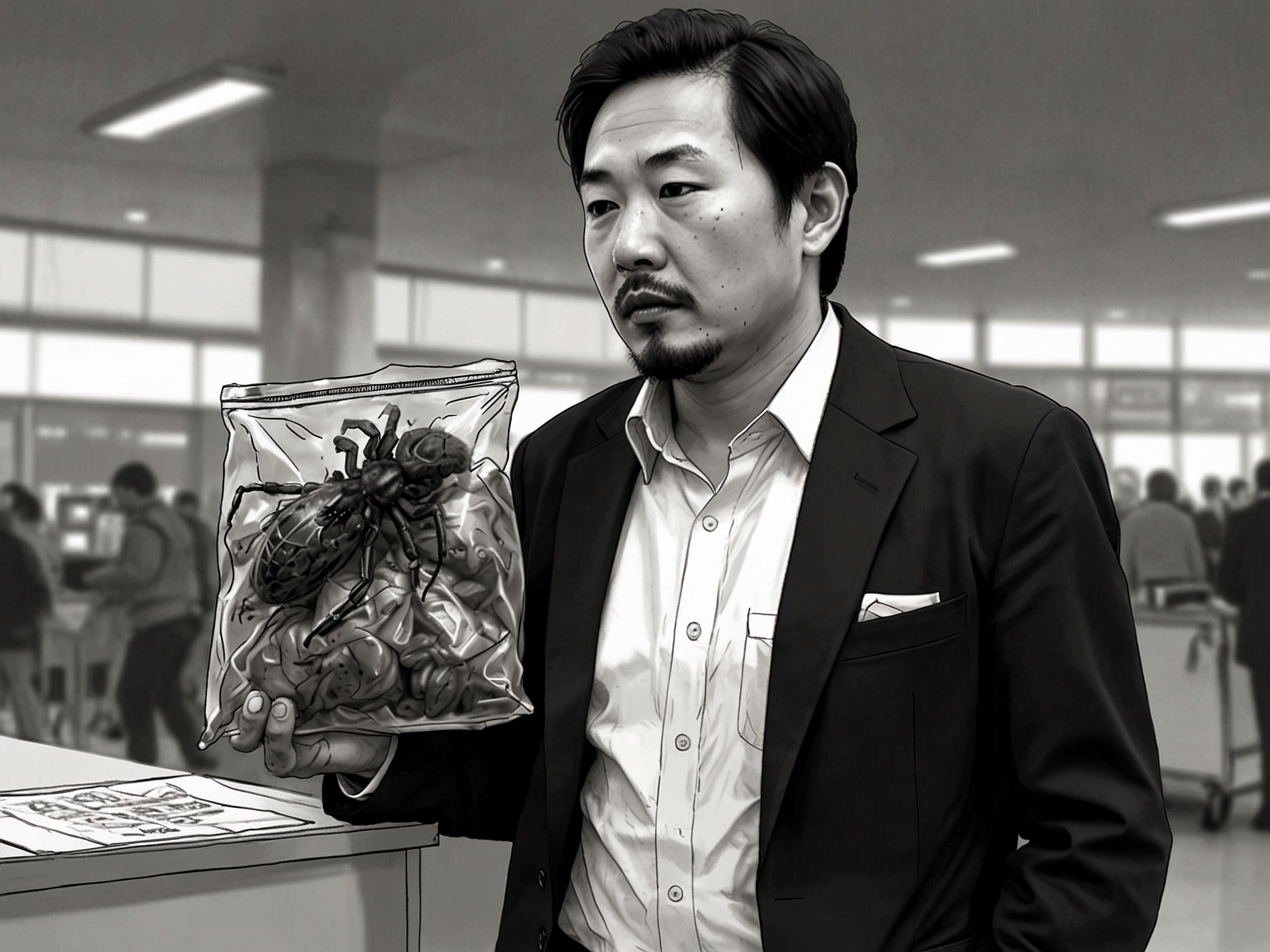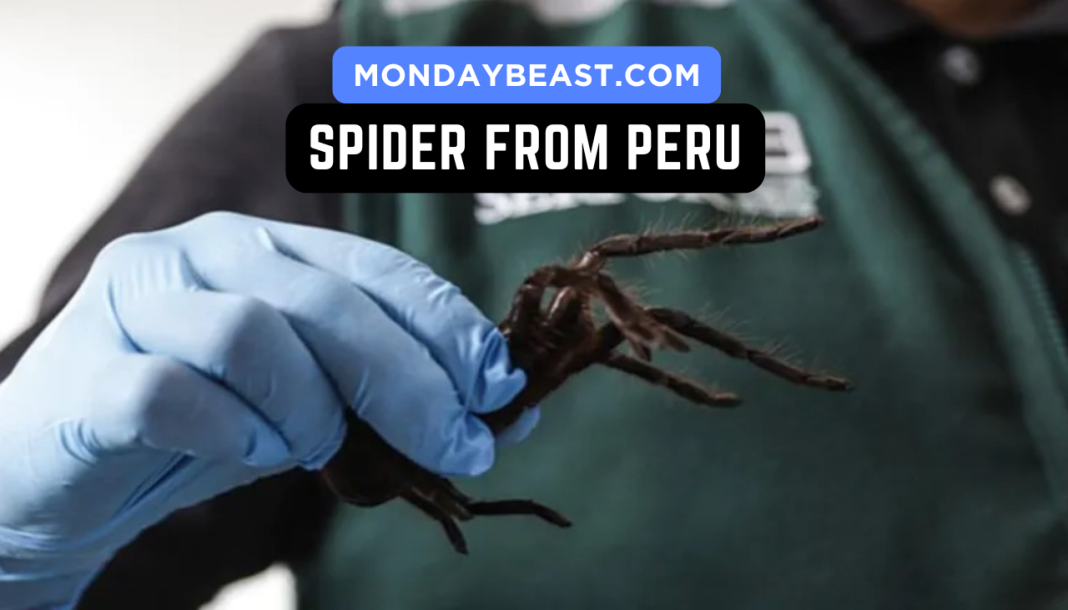A South Korean man recently made headlines when he tried to smuggle numerous tarantulas from Peru. This bizarre attempt has raised eyebrows. What drives a person to carry hundreds of creatures strapped to their body?

On November 8, airport officials at Lima’s Jorge Chavez International Airport noticed something unusual. A 28-year-old man was acting strangely. His stomach seemed unnaturally swollen, a red flag for security personnel. When questioned, he reluctantly lifted his shirt. What they discovered was shocking: multiple zip-lock bags filled with animals strapped to his abdomen.
These bags contained a staggering array of wildlife. Officials recovered 35 adult tarantulas, 285 juvenile tarantulas, 110 centipedes, and even nine bullet ants. All these creatures were native to the Peruvian Amazon. It’s a vivid example of the illegal wildlife trafficking that plagues our world today.

Walter Silva, a wildlife specialist from SERFOR, confirmed the tarantulas were an endangered species. That poses a serious question: is turning these animals into gifts really worth the risks? Silva highlighted the darker aspect of this incident. He noted that illegal wildlife trafficking becomes rampant as holidays approach.
Many people mistakenly view these exotic creatures as unique gifts. There’s an urgent need for awareness regarding the consequences of such actions. The temptation to own something extraordinary can cloud judgment. Exotic pets may seem appealing, but the trafficking process harms the ecosystem.

Animals are taken from their natural habitat. They are often mistreated or die during transit. It’s a tragic cycle fueled by demand and ignorance. This Christmas season, the story serves as a reminder. What are we willing to sacrifice for novelty?
The allure of the extraordinary can lead to severe consequences, ultimately affecting biodiversity. It’s vital to understand our role in these events. We should promote ethical choices and consciously steer away from practices that further endanger our natural world.
Reflecting on personal experiences with pets, I wonder what drives interest in such exotic creatures. Is it about status? Adventure? The thrill of owning something others don’t? As we proceed into the holiday season, let’s keep wildlife safety in mind.
Seek pets from responsible sources. Appreciate nature from a distance rather than turning it into an object of trade. In the end, perhaps the greatest gift we can give this holiday season is education. By learning more about the species at risk, we take a step towards preserving them.
Knowledge is power in the fight against wildlife trafficking. Let this incident serve as both a warning and a lesson. Only through awareness can we foster a respectful relationship with our planet’s biodiversity.




